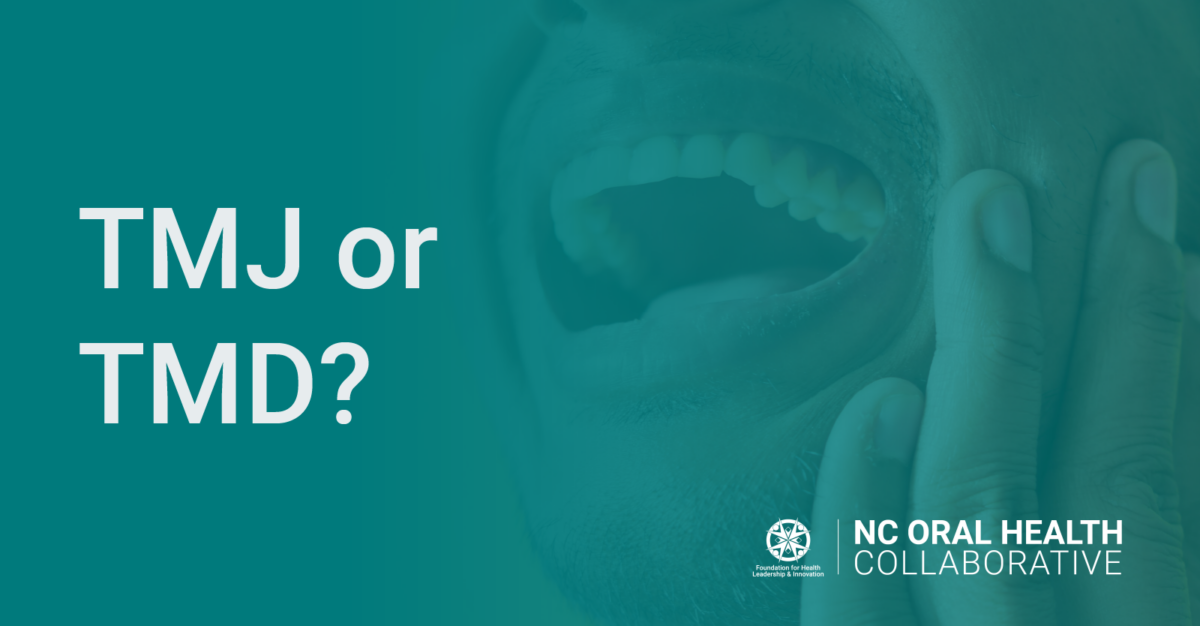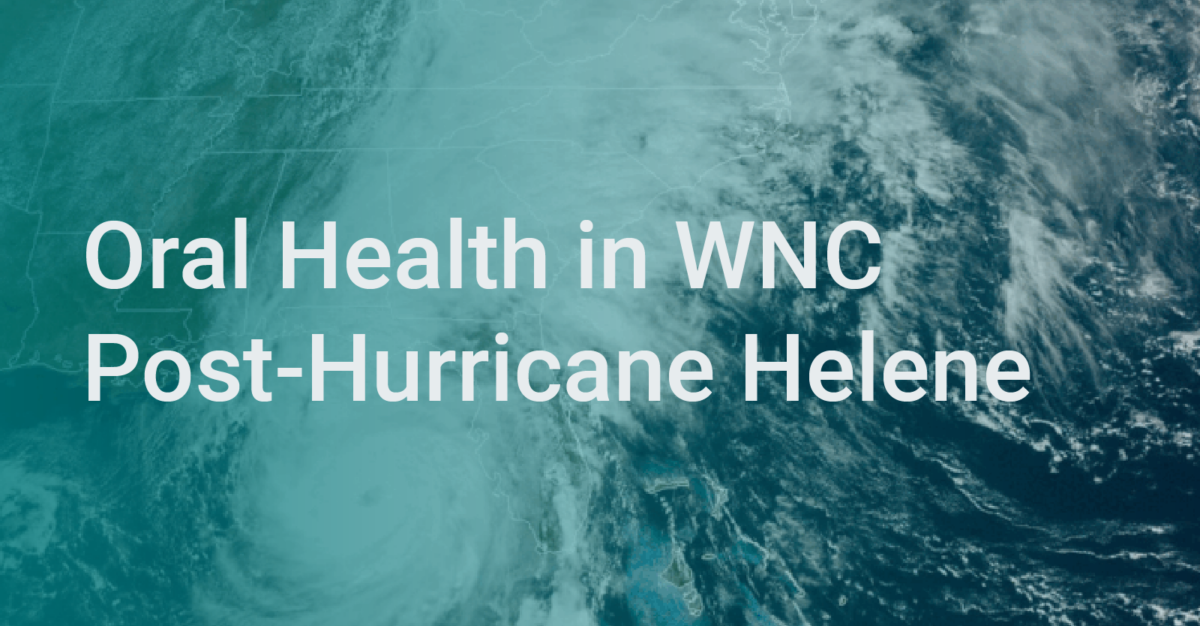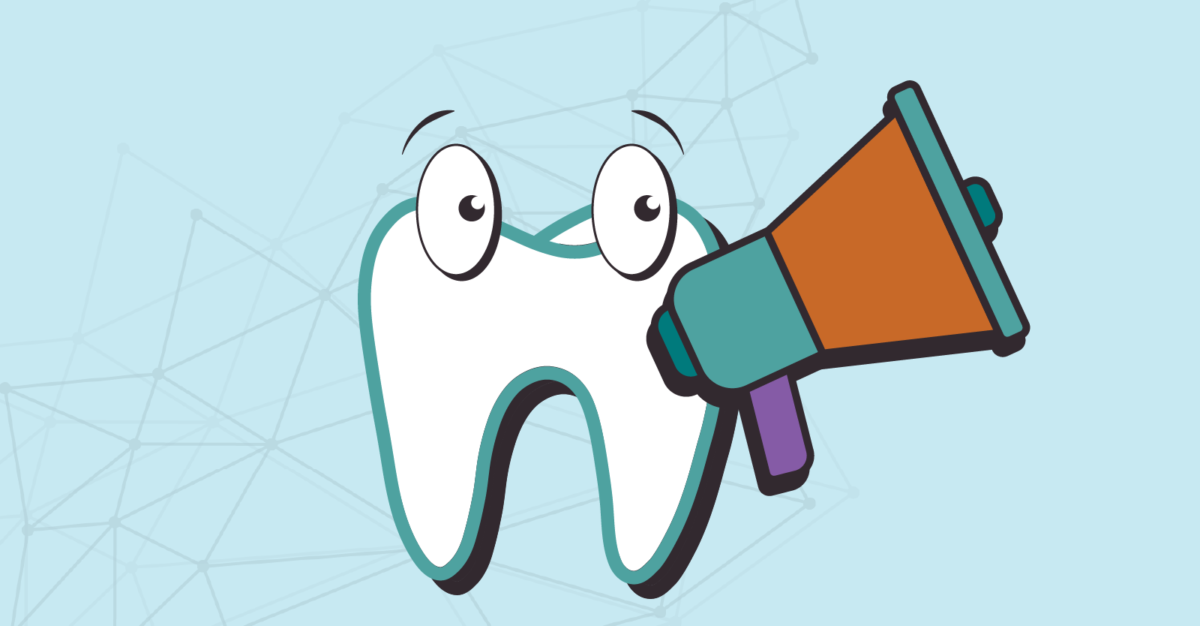Natural disasters impact every aspect of our lives in obvious and unexpected ways—oral health is no exception. As the climate crisis continues, we see increasingly catastrophic storms worldwide, and areas such as Western North Carolina (WNC) that were previously considered climate-safe face levels of destruction never experienced before.
In the aftermath of Helene, a remarkable combination of community response and federal and state support has coalesced to aid recovery across the region. Despite monumental effort across the board, the disaster has exposed vulnerabilities and existing disparities that will take significant time to fix.
While oral health might not be among the most pressing needs immediately after a natural disaster like Hurricane Helene, addressing dental needs as Western North Carolina recovers will be vital for overall health and ensuring people have access to the care they deserve.
In this blog post, we’ll discuss common effects of natural disasters on oral health, short- and long-term responses, and opportunities for meeting dental needs across WNC.
How Natural Disasters Can Impact Your Oral Health
Hurricane Helene exceeded all storm damage predictions, and many people found themselves unprepared, trapped, or otherwise suddenly cut off from the world. When a natural disaster shuts down everything from power to the internet and access to drinkable (also known as potable) water for an unknown amount of time, simple daily tasks like teeth brushing and oral hygiene routines quickly get upended.
Here are a few ways events like natural disasters can affect oral health:
- Disrupted Oral Hygiene Routines: Disasters can restrict access to clean water, including municipal water systems that provide fluoride and hygiene products, impacting oral care routines. These interruptions increase the risks of developing cavities, gum disease, and infections, especially in prolonged emergencies.
- Stress-Related Dental Issues: High-stress situations often lead to teeth grinding (bruxism) or jaw clenching, which can cause worn enamel, cracked teeth, and TMJ (temporomandibular joint) pain.
- Reduced Access to Dental Care: Disaster-impacted areas may have limited or no access to dental clinics, causing minor dental issues to worsen over time due to a lack of immediate treatment options. This is especially true in communities already facing various barriers to accessing oral health care before the event.
- Nutritional Challenges: Emergency food supplies often contain processed, sugary items, elevating the risk of decay and gum issues over time, especially without clean water to wash away excess sugar particles.
Daily routines like oral health may be forgotten in the immediate aftermath of a disaster, but that doesn’t mean it is any less critical. Preparing a dental hygiene kit with an extra toothbrush, toothpaste, floss, and water bottle for yourself and your family can help you maintain your oral hygiene routine during a natural disaster or other emergency.
Remember to drink water during and after eating, especially sugary and processed foods, when possible.
Addressing Oral Health Needs During a Natural Disaster Public Health Emergency
As we learned during the COVID-19 pandemic, systems-level measures can help mitigate risks and support long-term well-being during a public health emergency (PHE).
After Hurricane Helene, traditional and non-traditional points of care stopped in Western North Carolina. Without access to reliable electricity and water, dental offices were forced to suspend services, and with schools shut down and roads closed, mobile dentistry was (and in many places remains) an unfeasible option to access care.
Delays in otherwise routine care will create backlogs, especially in public health settings where providers already face heavy patient caseloads.
Temporary NC Medicaid Direct Flexibilities
Part of North Carolina’s state response has been to implement temporary NC Medicaid Direct flexibilities for dental providers during the Hurricane Helene PHE, including:
- Teledentistry
- Adds a code for telephone or audio-only encounters that don’t result in a diagnosis
- Expands a code for synchronous encounters, with or without a dentist present
- Allows a code for asynchronous encounters using recorded video or photos
- Radiographic Images
- Allows an override for the one-year limit for bitewing radiographic images and the five-year limit for panoramic radiographic images
- Denture Replacement
- Allows an override of the 8-year limit on partial dentures and the 10-year limit on complete dentures for appliances lost in the hurricane
- Fluoride Varnish
- Allows topical application of fluoride varnish for all ages
Keep an eye out for more information from the NC Department of Health and Human Services regarding Hurricane Helene recovery measures.
Mobile Dental Clinics & Teledentistry
In the coming months, deploying more mobile dental clinics and using teledentistry whenever possible will be important in addressing the long-term oral health care needs of impacted communities.
These access points are already vital for people in rural and underserved areas. Expanding them even further is crucial as the impacts from Helene pose additional barriers, exacerbating access and equity issues even more.
As roads re-open, classes resume, and internet access is restored, mobile dentistry and teledentistry will play essential roles in providing care missed during the immediate aftermath of the hurricane.
Trauma-Informed Oral Health Care
Natural disasters are traumatic to live through. “There is no right or wrong way to feel when a disaster hits, and people will continue to experience the emotional impact long after the storm has passed,” said NC Health and Human Services Secretary Kody H. Kinsley. “Helping western North Carolinians rebuild means also helping them heal.”
In the wake of a disaster, trauma-informed care becomes especially important across disciplines to support whole-person health. For oral health providers, it will continue to be critical to account for additional layers of dental fear and anxiety that patients may experience.
Trauma-informed care is an approach that acknowledges the impact of trauma and its effects on health and well-being. Oral health providers can take steps to support themselves, their patients, and their staff, aimed at avoiding re-traumatization. Here are a few ideas:
- Maintain open communication with patients and engage them throughout the treatment process, including asking what they need to feel more comfortable (e.g., wearing earplugs, headphones, or sunglasses, taking breaks when needed, etc.)
- Schedule trauma-informed training for all staff members (e.g., dentists, hygienists, assistants, technicians, receptionists, and security personnel)
- Consider making sensory-friendly changes to the office environment (e.g., calming music, soothing scents, etc.)
- Collaborate with local organizations and other providers, share valuable information about accessing resources, and make helpful referrals to address pressing needs
You can learn more in the Trauma-Informed Care and Oral Health: Recommendations for Practitioners from the Illinois ACEs Response Collaborative.
Stay Tuned for More on Oral Health Care in WNC Post-Helene
In the coming months, NCOHC and our partner organizations at the Foundation for Health Leadership & Innovation will publish more information about Hurricane Helene and access to care in Western North Carolina. Stay tuned for more about:
- Food and nutrition after a natural disaster.
- Lessons learned from past natural disasters.
- Future implications and opportunities for public health.
- How Hurricane Helene has further exposed existing Internet access and equity gaps.
NCOHC, a Foundation for Health Leadership & Innovation program, works to advance systems-level changes, improving the overall health and well-being of all North Carolinians by increasing access and equity in care. Sign up for our monthly newsletter to join the network and get involved!
Resources
Related Content




 العربية
العربية 简体中文
简体中文 English
English Filipino
Filipino Français
Français Deutsch
Deutsch हिन्दी
हिन्दी Hmong
Hmong 한국어
한국어 Русский
Русский Español
Español தமிழ்
தமிழ் తెలుగు
తెలుగు Українська
Українська Tiếng Việt
Tiếng Việt